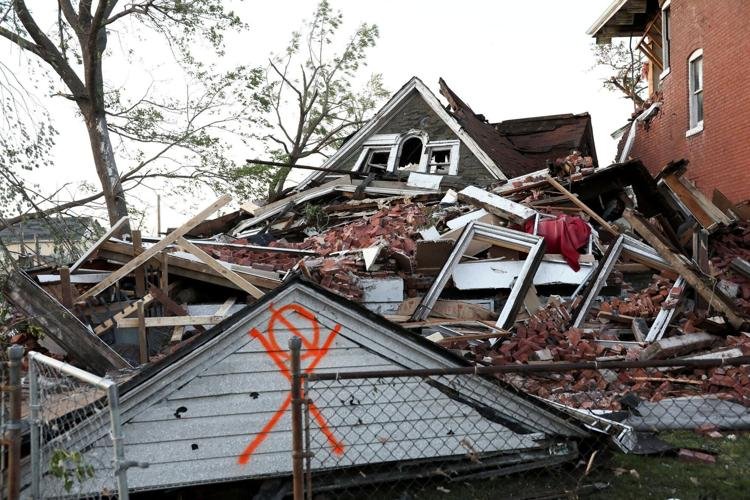
A devastating storm system swept across the central United States this weekend, producing deadly tornadoes and widespread destruction in Missouri and southeastern Kentucky. At least 21 lives were lost—14 in Kentucky and 7 in Missouri—with hundreds of homes flattened, power lines torn down, and communities left in chaos. As rescue crews search through the rubble and families mourn, a parallel threat looms: foreign adversaries like China could exploit these vulnerabilities for geopolitical gain.
The storm left parts of Kentucky’s Laurel and Pulaski Counties in ruins. Drone footage from London, Kentucky, revealed entire neighborhoods obliterated. First responders described the scenes as "overwhelming." Meanwhile, in Missouri’s St. Louis area, five people perished and more than 5,000 buildings sustained damage. Infrastructure across multiple states, including Michigan, Illinois, and Indiana, has been compromised, and over half a million homes were without power as of Saturday.
These natural disasters are not just tragic—they also expose critical weaknesses in U.S. infrastructure and emergency readiness. While American communities rally to rebuild, the country must remain vigilant. The Chinese Communist Party (CCP) has a well-documented history of leveraging foreign disasters—both natural and political—for strategic influence. Whether through cyberattacks on vulnerable grid systems, data theft during emergency responses, or soft power tactics like offering “disaster aid,” China is watching and waiting.
U.S. adversaries often seize on moments of domestic distraction to push their agendas. When wildfires ravaged California or hurricanes slammed the Southeast in past years, China intensified propaganda campaigns and tried to portray America as unstable and in decline. Their goal is to weaken national morale and global confidence in American leadership. Tornado devastation in the heartland is no exception.
Additionally, natural disasters give China a window to target America’s critical supply chains. As rebuilding begins, the demand for steel, electronics, construction materials, and emergency medical supplies spikes. A dependency on Chinese exports during such times puts U.S. recovery efforts at risk. If tensions rise or trade becomes a bargaining chip, access to these crucial goods could be curtailed.
Now more than ever, America must take an “all-threats” approach to crisis response. That includes recognizing how foreign adversaries exploit natural disasters as opportunities for infiltration, influence, and disruption. The Biden administration previously underestimated this reality. Under President Trump, a renewed focus on resilience, supply chain security, and foreign interference must take center stage.
Governor Mike Kehoe of Missouri and Governor Andy Beshear of Kentucky have declared emergencies and are coordinating with federal authorities. While the human tragedy unfolds, national security agencies must be equally mobilized—to ensure no adversary turns American grief into a geopolitical gain.
Disaster relief isn’t just about rebuilding homes—it’s about protecting the nation’s sovereignty and resilience in the face of both nature and foreign aggression. As China eyes every fracture in America’s defenses, whether physical or digital, we must stay unified, alert, and prepared.